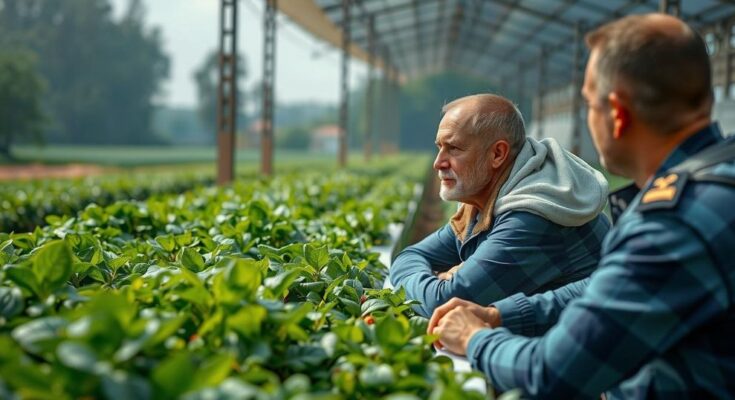The forthcoming COP30 in Brazil will prioritize agriculture in climate discussions, addressing its role as a contributor to and victim of climate change. The FAO underscores the need for tailored solutions to empower farmers and enhance food security. Initiatives from COP29 laid important groundwork, but COP30 must ensure equitable financing and localized strategies especially for vulnerable regions like India and the Global South.
The upcoming United Nations Climate Change Conference (COP30) in Belem, Brazil, marks a significant opportunity to address agricultural issues intertwined with climate change. Agriculture contributes approximately 10-12% of global greenhouse gas emissions, largely due to practices such as deforestation and livestock farming. Conversely, it is also vulnerable to climate impacts, including erratic weather and rising temperatures, which directly threaten food security, particularly as the global population continues to grow.
The Food and Agriculture Organization (FAO) aims to highlight agriculture’s dual role at COP30, emphasizing that effective agri-food solutions equate to climate solutions. Following COP29, where various initiatives were discussed, the attention shifts to creating actionable frameworks for farmers to adapt to climate challenges. These include exploring financing mechanisms that must complement technological solutions, especially for farmers in resource-constrained regions like India and other parts of the Global South.
COP29 made significant strides in carbon trading and initiated the Reducing Methane from Organic Waste Declaration, underscoring the urgent need to address agricultural emissions comprehensively. However, the exclusion of tropical deforestation from the agenda signals a concerning gap in the global climate discourse at COP29, which must be rectified at COP30. Additionally, the concept of a ‘Just Transition’ in agriculture emerged as a vital area for focus, highlighting that farmers require not only technology but equitable financial support from developed nations to enhance resilience against climate change.
Each agro-climatic zone in countries like India presents unique challenges and opportunities, making it imperative that proposed solutions are tailored to specific regional needs. COP30 should facilitate contextualized discussions and case studies to ensure relevance and effectiveness in climate adaptation strategies for agriculture.
In conclusion, it is anticipated that COP30 will foster constructive dialogue and result in meaningful commitments that can uplift farmers worldwide, particularly those facing heightened pressures in the Global South. Addressing these issues comprehensively could lead to advancements that not only mitigate climate change but also secure food sources for future generations.
Agriculture plays a critical role in both contributing to and being affected by climate change. As a sector responsible for around 10-12% of global emissions due to practices like livestock farming and deforestation, it also faces severe risks from climate change impacts. This duality poses significant challenges for food security, making agricultural discussions at international climate conferences essential for sustainable global development. With the next COP session approaching, the need for focused agricultural strategies becomes more pressing, especially for vulnerable farmers across developing nations.
The next COP session holds considerable potential for advancing agricultural considerations in climate change dialogues. By prioritizing localized and equitable support for farmers, particularly in the Global South, COP30 can facilitate meaningful progress in climate adaptation and mitigation. The emphasis on tailored solutions and collaboration among developed and developing nations will be crucial in addressing the challenges posed by climate change to ensure food security and sustainable agricultural practices.
Original Source: www.outlookbusiness.com




